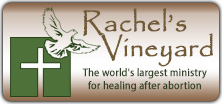The following letter was addressed by Bishop Provost to the priests of the Diocese of Lake Charles. The letter contains information which the Bishop thinks might be of interest to the faithful of the Diocese as well. Therefore, it is being posted here for their benefit.
To the Priests of the Diocese of Lake Charles,
The pastoral care of the sick and dying is a major priority and a loving ministry for us in priestly service. I have spoken of this responsibility before at our convocations and retreats, but I thought I would write this time.
The moment of death for a human being is a sacred moment. It requires of us deep respect and genuine attentiveness. As priests and pastors, we should be particularly conscious of being present to those who are dying, offering them the sacraments of the Church (the Sacraments of Penance, Anointing of the Sick, and Holy Eucharist—which, if it is the final Holy Communion, we refer to as Viaticum) and accompanying them with our prayers.
One of these prayers is the Apostolic Pardon which is found in the ritual book we use for the care of the sick and dying. For those properly disposed, the Apostolic Pardon bestows a plenary indulgence. As we have experienced, more often than not, the dying reach death outside their homes, in a hospital or extended care facility. As well, the Anointing of the Sick is frequently administered prior to the final moments of earthly life. This fact does not absolve us of the responsibility of being present and accompanying the dying in their immediate circumstances.
Besides the Apostolic Pardon, the Church provides us with additional prayers which offer abundant consolation to the dying and their families. They should be employed in all their richness. I am reminded of the beautiful poem, The Dream of Gerontius, by Blessed John Henry Newman. The prayers in this poem, including the Litany of Saints and the Prayer of Commendation (“Go forth, Christian soul”), remain part of our ritual to accompany the dying. This classic literary work calls to mind so vividly moments that I have seen at the deathbed of parishioners. I have experienced, as well, patients and the dying, thought to be unconscious or unresponsive, open their eyes and even utter the responses as these prayers were recited. These are graced occasions, holy and sacred moments, when the dying are reassured of the Church’s presence to them as they enter Eternal Life and, most especially, of the pardon of their sins and the preparation to meet their loving Creator. To offer them this ministry is a great privilege.
I leave you with these thoughts and remain with prayers for a continuing blessed Easter Season,
Sincerely yours in our risen Lord, 
+Glen John Provost
Bishop of Lake Charles
















